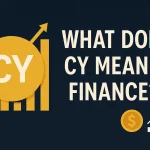19000 Days in Years – Crypto Perspective on 52 Years
19000 Days in Years – What It Really Is (and Why Crypto Investors Should Care)
19000 days is approximately 52.05 years. Simple math—dividing 19000 by 365.25—but in crypto, the number has surprising meaning. Whether the age of an unused wallet, the vesting timeline of a DAO, or mythological protocol longevity, framing in decades inspires intrigue. Let’s explore what 19000 days actually signifies in terms of blockchain timeline, DeFi culture, and long-term thinking in an otherwise high-speed development-defined ecosystem.
Table of Contents
- How Many Years Is 19000 Days?
- Why 19000 Days Matters in Crypto
- Real Examples from Blockchain History
- Long-Term Lockups and DAO Timelines
- What 52 Years Means in Crypto Context
- FAQ – 19000 Days in Years
How Many Years Is 19000 Days?
Divide by 365.25 (to account for leap years).
19000 ÷ 365.25 ≈ 52.05 years
More than a half-century—a timeframe long enough to encompass generations and many, many times longer than the life expectancy of any currently existing blockchain endeavor.
Why 19000 Days Matters in Crypto
Time is of the essence in cryptocurrency. Token unlocks, staking rewards, vesting cliffs all depend on timelines. If someone says 19000 days, it brings the discussion out of mere numbers and into the realm of thought experiment: what is safe, useful, and functional for over 50 years in a world where obsolescence happens at lightning speed?
This number also makes a staging to be compared with crypto legends. Assuming, for instance, that Bitcoin’s first wallet—and said to belong to Satoshi Nakamoto—has not budged since 2009. And if it stays in idle mode for 19000 days, then that is a cultural landmark and a trophy of long ownership.
Real Examples from Blockchain History
No project, however, has survived to date at 19000 days. Using our projections on the basis of that timeframe works for us because it puts our vision of the crypto future:
Bitcoin itself has existed for between 14,000 and 19,000 days.
Most of the tokens and protocols out there today are no older than a few years.
This mindset makes us need to think in terms of endurance, strength, and legacy—terms that are still discovering their definition in the space.
Long-Term Lockups and DAO Timelines
Consider a token that has a 19000-day lockup period—that’s over 52 years of locked coins. While that’s largely unheard of, it does make a valid point: crypto must start looking ahead on longer horizons.
The DAOs like Curve utilize lockups from 4 to 10 years now, and that’s a indication that the trend is heading towards long-term thinking. When the ecosystem grows up, the projects will be forced to take into consideration not just short-term growth but long-term stability and legacy as well.
What 52 Years Means in Crypto Context
Crypto at breakneck speed: memecoins crash and boom in a matter of days, cycles exhaust every other couple of years. But reflecting on 19000 days requires us to hold attention on durable technologies, governance mechanisms, and social mores which endure across decades. Long-proven projects need to look beyond hot hype and think about keeping relevant.
19000 days isn’t a conversion—it’s a way of thinking. It is a culture of resilience, considered design, and long-term trust—things required to build the future of ownership and finance.
FAQ – 19000 Days in Years
19000 days how many years?
Approximately 52.05 years, applying the 365.25-day calendar to account for leap years.
Why is 19000 days significant in crypto?
Because it symbolizes patience, perseverance, and long-term dedication—qualities that are important but traditionally underappreciated in the hyper-speed crypto environment.
Is there crypto vesting for 19000 days?
Not yet. Vesting periods generally range from 1 to 10 years. 19000 days is a symbolic threshold, which makes us think about multi-decade timescales.
In plain English, how much is 19000 days?
A working life of around 52 years to cover careers, generation changes, or periods of technology. In cryptocurrency, a useful conceptual tool for long-term strategic thinking.
➔ Post created by Robert AI Team



